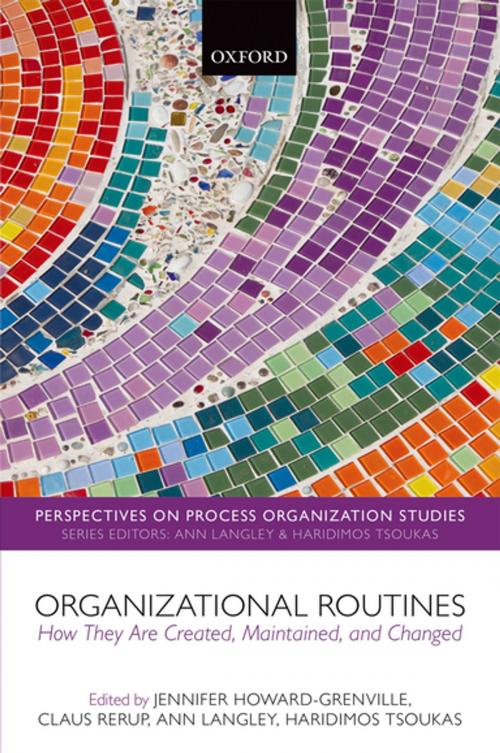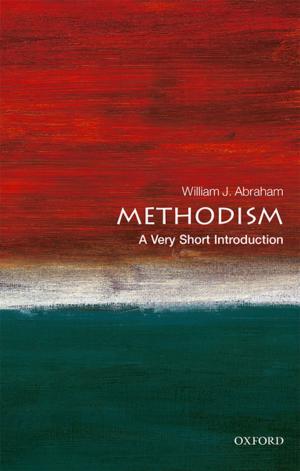Organizational Routines
How They Are Created, Maintained, and Changed
Business & Finance, Human Resources & Personnel Management, Organizational Behavior, Nonfiction, Social & Cultural Studies, Social Science| Author: | ISBN: | 9780191077142 | |
| Publisher: | OUP Oxford | Publication: | March 24, 2016 |
| Imprint: | OUP Oxford | Language: | English |
| Author: | |
| ISBN: | 9780191077142 |
| Publisher: | OUP Oxford |
| Publication: | March 24, 2016 |
| Imprint: | OUP Oxford |
| Language: | English |
Over the past 15 years, organizational routines have been increasingly investigated from a process perspective to challenge the idea that routines are stable entities that are mindlessly enacted. A process perspective explores how routines are performed by specific people in specific settings. It shows how action, improvisation, and novelty are part of routine performances. It also departs from a view of routines as "black boxes" that transform inputs into organizational outputs and places attention on the actual actions and patterns that comprise routines. Routines are both effortful accomplishments, in that it takes effort to perform, sustain, or change them, and emergent accomplishments, because sometimes the effort to perform routines leads to unforeseen change. While a process perspective has enabled scholars to open up the 'black box' of routines and explore their actions and patterns in fine-grained, dynamic ways, there is much more work to be done. Chapters in this volume make considerable progress, through the three main themes expressed across these chapters. These are: Zooming out to understand routines in larger contexts; Zooming in to reveal actor dispositions and skill; and Innovation, creativity and routines in ambiguous contexts.
Over the past 15 years, organizational routines have been increasingly investigated from a process perspective to challenge the idea that routines are stable entities that are mindlessly enacted. A process perspective explores how routines are performed by specific people in specific settings. It shows how action, improvisation, and novelty are part of routine performances. It also departs from a view of routines as "black boxes" that transform inputs into organizational outputs and places attention on the actual actions and patterns that comprise routines. Routines are both effortful accomplishments, in that it takes effort to perform, sustain, or change them, and emergent accomplishments, because sometimes the effort to perform routines leads to unforeseen change. While a process perspective has enabled scholars to open up the 'black box' of routines and explore their actions and patterns in fine-grained, dynamic ways, there is much more work to be done. Chapters in this volume make considerable progress, through the three main themes expressed across these chapters. These are: Zooming out to understand routines in larger contexts; Zooming in to reveal actor dispositions and skill; and Innovation, creativity and routines in ambiguous contexts.















